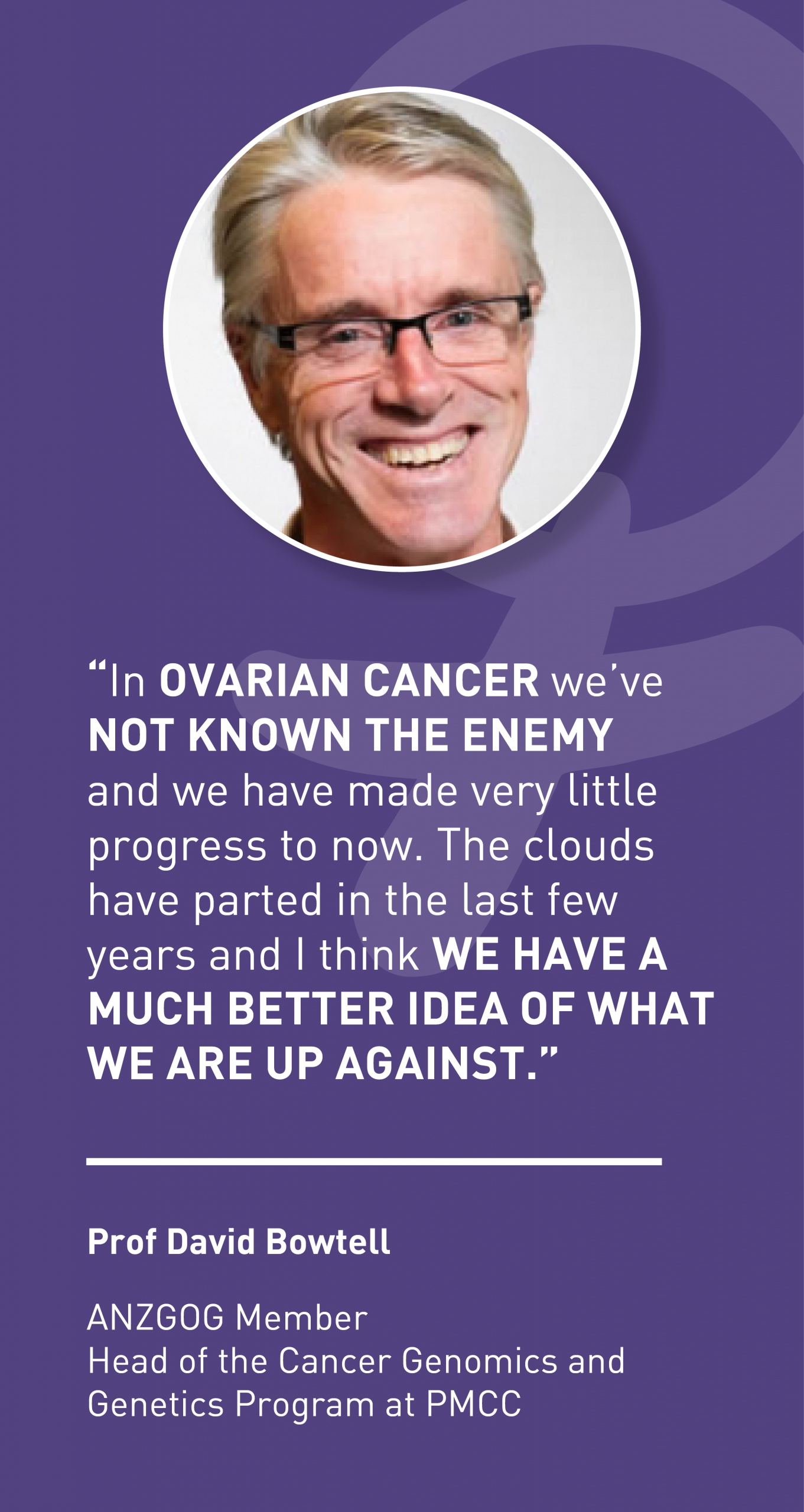One size no longer fits all in ovarian cancer treatment.
According to Cancer Australia, 1815 women are estimated to be diagnosed with ovarian cancer this year, and 1016 women are estimated to die from ovarian cancer. The five-year survival rate is currently just 49%. Survival has not improved in decades and lags well behind breast (91% survival five years from diagnosis) and other cancers.
Ovarian cancer has traditionally been thought of as a single disease and is still treated that way. The last five years have seen a revolution in our understanding of the biology of ovarian cancers. We now understand why a one-size-fits-all approach to treatment must and can change.
OASIS – Ovarian cancer Alliance for SIgnal-Seeking clinical trials
Ovarian cancer has traditionally been thought of as a single disease. Recent molecular discoveries have confirmed that ovarian cancer should not be one size fits all. Survival has not improved in decades and lags well behind breast and other cancers. If survival rates are to improve then more research is required to target the defined sub sets of ovarian cancer.
The OASIS Initiative is a collaborative research program between ANZGOG and the Australian Ovarian Cancer Study to undertake small signal seeking trials that show sufficient evidence of clinical activity to allow larger randomised trials.
Any change in the way ovarian cancer is treated, can only be scientifically validated by clinical trials.
The OASIS research model aims to significantly shorten the cycle of clinical testing by:
- Speeding Translation: Strengthen existing links between laboratory and clinical researchers to accelerate the application of research findings,
- Improving cost-efficiency: Develop an infrastructure and culture that enables much more cost-effective trials,
- Developing funding: Establish a pool of funds, with proper governance oversight, to support the prompt initiation of signal-seeking studies once indicators are identified in the lab.
A signal-seeking clinical trial is like sending out a scouting party to map the terrain ahead. These trials are nimble and responsive to new information, showing the way forward for the main group.
Professor Michael Friedlander, AM
The OASIS Initiative was seed funded by philanthropy and continues to seek private and public donations.
For all OASIS Initiative inquiries, please contact Karen Livingstone AM (Development – Philanthropy Major Gifts, ANZGOG):
T: +61 4 3811 5524
E: development@anzgog.org.au







